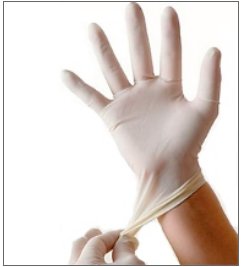Supreme Court Upholds Strip Searches For Any Crime
As you’re probably aware, the Supreme Court is soon going to rule on a case that I’ve heard is kind of a big deal.
But this Supreme Court term has been marked by several other important cases that, in any other year, probably would have gotten front billing on the law blogs. For example, a few days ago the Supreme Court upheld a policy implemented by New Jersey jails that requires full strip and body cavity searches of everyone who is arrested and processed at the jail, no matter how minor the crime for which they were arrested.
And remember, at the point where a person has been arrested and booked at the local jail, they usually haven’t yet been convicted of a crime, or even formally charged with one. And, as I’m sure you know, we have a principle in the American legal system that’s often referred to as “innocent until proven guilty.” That generally means that a person can’t be punished or subjected to undue hardship in response to an alleged crime until and unless they’re convicted.
Obviously, there are some commonsense balancing acts that need to be performed: a suspect can be held in jail while they’re on trial if they’re deemed to be a threat to the public, or a flight risk. Also, measures to protect the safety of jail personnel and other inmates can be taken, including searches and confiscation of any items that might be considered dangerous.
However, this ruling appears to shift that balance sharply in favor of law enforcement even more than it already was.
 Personally, I think that this decision was probably unnecessary. Jail authorities already have a good deal of discretion to search anyone who’s incarcerated if they have even the slightest reason to believe that they might be smuggling weapons or contraband into the jail. Likewise, any hint that the inmate might pose a safety threat to jail staff or other inmates can be grounds for a complete search.
Personally, I think that this decision was probably unnecessary. Jail authorities already have a good deal of discretion to search anyone who’s incarcerated if they have even the slightest reason to believe that they might be smuggling weapons or contraband into the jail. Likewise, any hint that the inmate might pose a safety threat to jail staff or other inmates can be grounds for a complete search.
However, the justices who dissented in this case noted that people arrested for relatively minor crimes, like shoplifting or DUI, are generally perpetrated by people who pose no significant threat to society, and are usually nonviolent. Also, those crimes are almost never premeditated, meaning that the people who commit them don’t wake up in the morning anticipating that they’ll be in jail before the day is out.
All this adds up to the obvious conclusion that someone who’s arrested for a minor crime committed on an impulse has almost certainly not gone to any lengths to conceal weapons or drugs in their body cavities, or anywhere else on their person.
Of course, some people will argue that the fact that a person “almost certainly” doesn’t have a weapon means that “there’s still a chance!”
But the liberties that many of us take for granted all come at a cost: for every freedom we enjoy, there’s going to be a few people who will abuse that freedom. For example, we could probably reduce domestic violence and many other types of crime by installing surveillance cameras in every home. But we aren’t going to do that, nor should we. As a society, we’ve decided that the right to privacy is worth the cost that comes with the fact that it’s relatively easy for people to commit crimes in their own homes.
Likewise, I don’t think there’s anything inherently wrong with accepting the much, much smaller risk that a person arrested for shoplifting has a weapon hidden in a body cavity, in exchange for the right to not be subjected to such indignity as a matter of course, even before you’re convicted, or even charged, with no particular suspicion that you’re even trying to smuggle something into the jail.
So, although the Supreme Court has said that this practice is permitted under the Constitution, I hope that authorities in other parts of the country refrain from adopting it. Again, this is not to say that intrusive searches are never justified. Obviously, any reasonable suspicion that a person might be smuggling something into the jail would be grounds for that type of search.
I think this whole case illustrates a serious problem that’s come up in recent years: if you come out in favor of civil liberties, you’re accused of being “soft on crime.” And no politician or judge wants to give that impression. And once a measure like this is implemented, it’s very unlikely to be discontinued. For example, even though there’s ample evidence that most of the “security” measures taken by TSA are extremely costly, and do little to nothing to make flying any safer, there’s virtually no chance that any of them will be discontinued. Why? Because somebody would actually have to make the decision to do so.
And the next time there’s a significant security breach, whoever chose to “loosen” security would probably get the blame for it, regardless of the actual cause.
I don’t pretend to have an answer to this problem. I’m not disputing that we sometimes need to balance freedom and security. But maybe, just maybe, we could use a little more common sense when doing that balancing act.

Comments